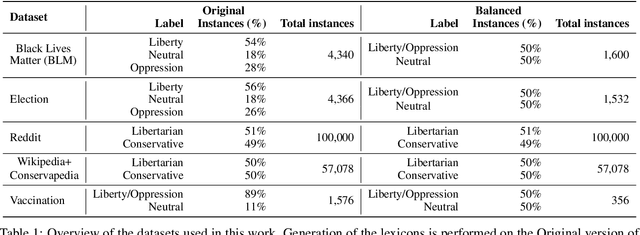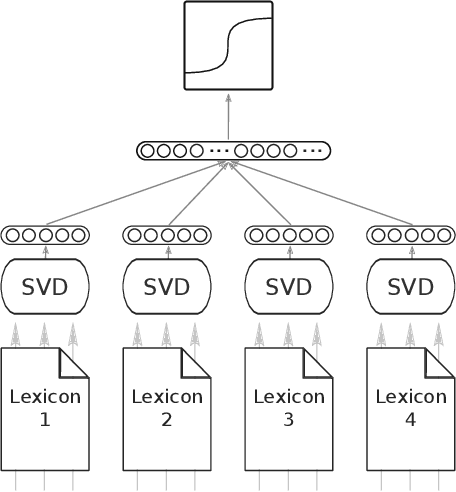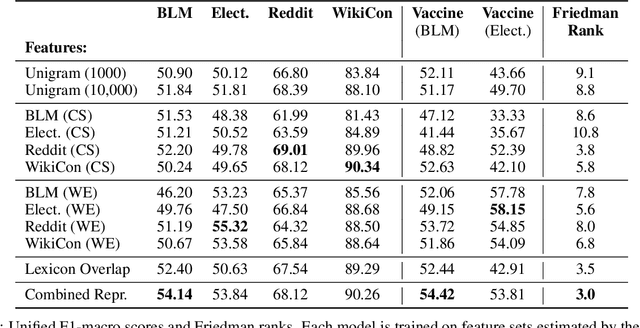A Novel Lexicon for the Moral Foundation of Liberty
Paper and Code
Jul 16, 2024



The moral value of liberty is a central concept in our inference system when it comes to taking a stance towards controversial social issues such as vaccine hesitancy, climate change, or the right to abortion. Here, we propose a novel Liberty lexicon evaluated on more than 3,000 manually annotated data both in in- and out-of-domain scenarios. As a result of this evaluation, we produce a combined lexicon that constitutes the main outcome of this work. This final lexicon incorporates information from an ensemble of lexicons that have been generated using word embedding similarity (WE) and compositional semantics (CS). Our key contributions include enriching the liberty annotations, developing a robust liberty lexicon for broader application, and revealing the complexity of expressions related to liberty across different platforms. Through the evaluation, we show that the difficulty of the task calls for designing approaches that combine knowledge, in an effort of improving the representations of learning systems.
 Add to Chrome
Add to Chrome Add to Firefox
Add to Firefox Add to Edge
Add to Edge